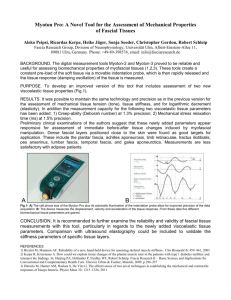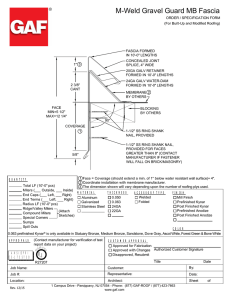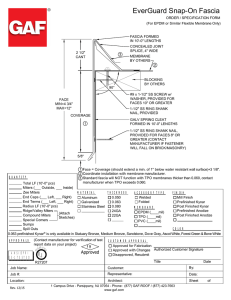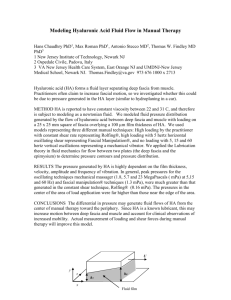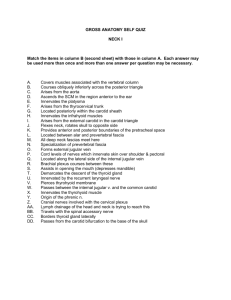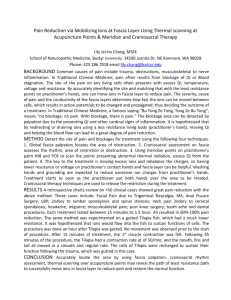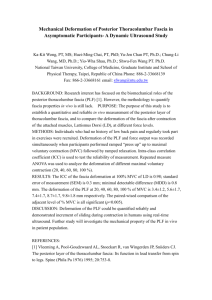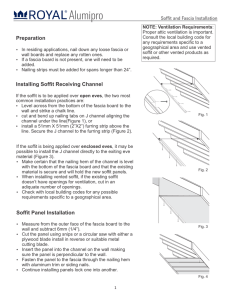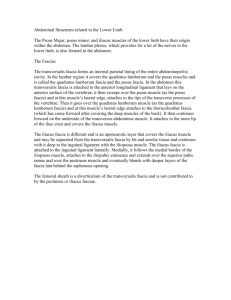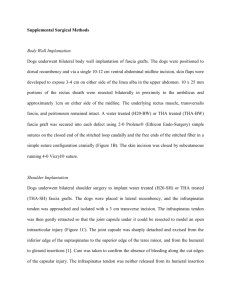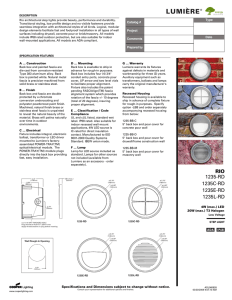Detection of thin fluid film thickness with ultrasound
advertisement
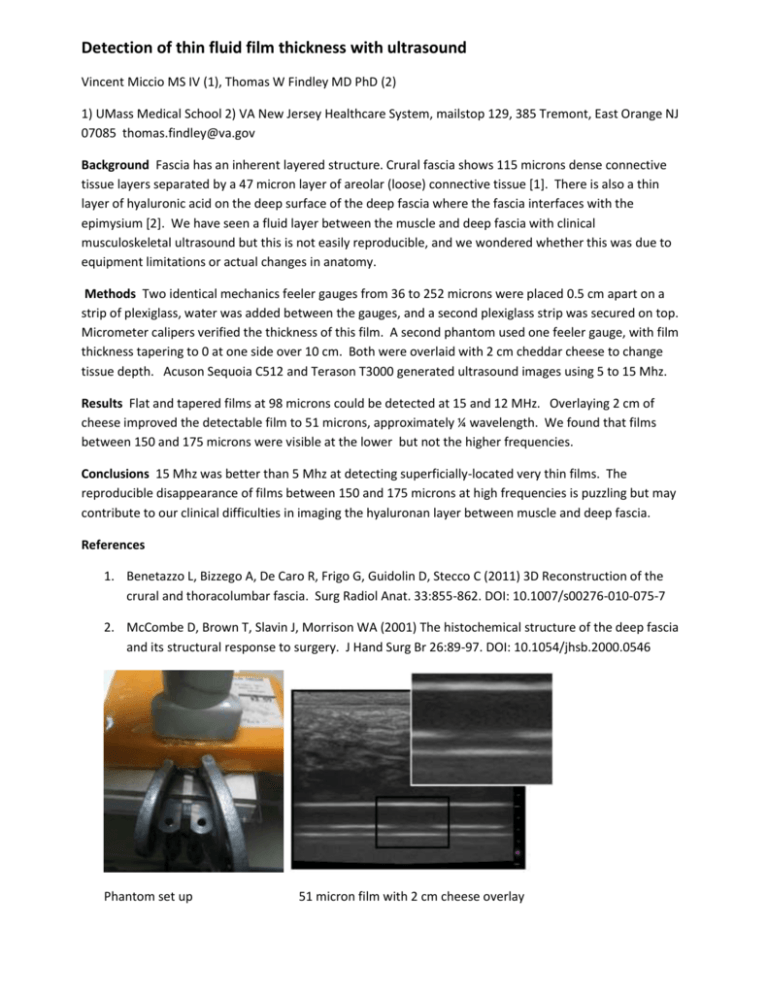
Detection of thin fluid film thickness with ultrasound Vincent Miccio MS IV (1), Thomas W Findley MD PhD (2) 1) UMass Medical School 2) VA New Jersey Healthcare System, mailstop 129, 385 Tremont, East Orange NJ 07085 thomas.findley@va.gov Background Fascia has an inherent layered structure. Crural fascia shows 115 microns dense connective tissue layers separated by a 47 micron layer of areolar (loose) connective tissue [1]. There is also a thin layer of hyaluronic acid on the deep surface of the deep fascia where the fascia interfaces with the epimysium [2]. We have seen a fluid layer between the muscle and deep fascia with clinical musculoskeletal ultrasound but this is not easily reproducible, and we wondered whether this was due to equipment limitations or actual changes in anatomy. Methods Two identical mechanics feeler gauges from 36 to 252 microns were placed 0.5 cm apart on a strip of plexiglass, water was added between the gauges, and a second plexiglass strip was secured on top. Micrometer calipers verified the thickness of this film. A second phantom used one feeler gauge, with film thickness tapering to 0 at one side over 10 cm. Both were overlaid with 2 cm cheddar cheese to change tissue depth. Acuson Sequoia C512 and Terason T3000 generated ultrasound images using 5 to 15 Mhz. Results Flat and tapered films at 98 microns could be detected at 15 and 12 MHz. Overlaying 2 cm of cheese improved the detectable film to 51 microns, approximately ¼ wavelength. We found that films between 150 and 175 microns were visible at the lower but not the higher frequencies. Conclusions 15 Mhz was better than 5 Mhz at detecting superficially-located very thin films. The reproducible disappearance of films between 150 and 175 microns at high frequencies is puzzling but may contribute to our clinical difficulties in imaging the hyaluronan layer between muscle and deep fascia. References 1. Benetazzo L, Bizzego A, De Caro R, Frigo G, Guidolin D, Stecco C (2011) 3D Reconstruction of the crural and thoracolumbar fascia. Surg Radiol Anat. 33:855-862. DOI: 10.1007/s00276-010-075-7 2. McCombe D, Brown T, Slavin J, Morrison WA (2001) The histochemical structure of the deep fascia and its structural response to surgery. J Hand Surg Br 26:89-97. DOI: 10.1054/jhsb.2000.0546 Phantom set up 51 micron film with 2 cm cheese overlay

